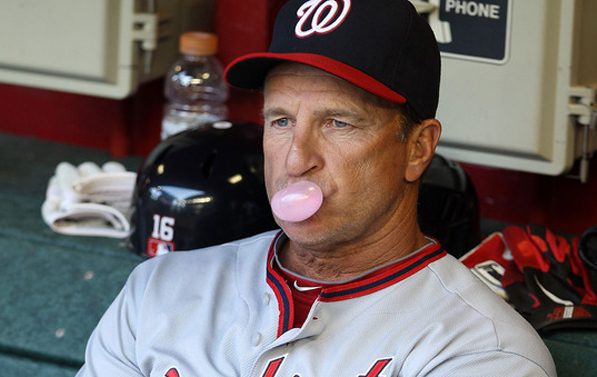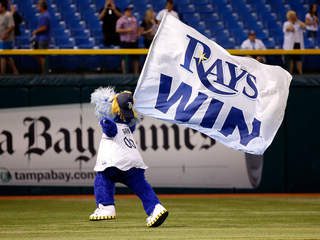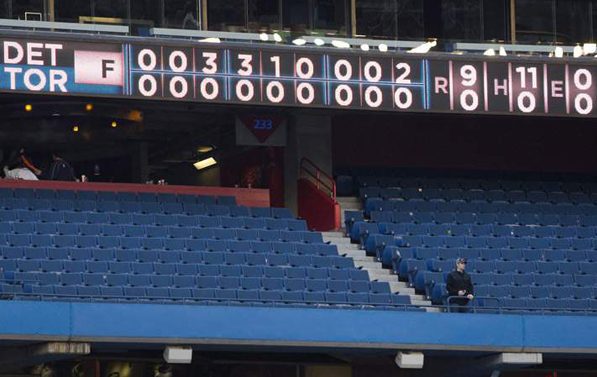

There are a lot of really tough jobs out there – jobs that I just don’t want to have anything to do with. I’m a writer and I have delicate sensibilities. I’m kind of a big fella, but I prefer jobs where I can use my smarts instead of my brawn. Sure, I can do manual labor, but I also have the ability to hire manual laborers to manually do any labor that is needed.
Construction, waste disposal, deep sea drilling, ice trucking, being Amy Winehouse’s AA sponsor and anything involving dealing with kids for more than five or six minutes – they all require a level of physical and mental endurance that not everyone can handle.
Of course there are plenty of easy jobs out there – tollbooth operator, greeter at a men’s clothier, Charlie Sheen, radio and/or club DJs and being the guy at Comedy Central who blindly throws darts at a wall to pick what new shows they’re going to have. Though quite easy, these would actually be very hard for me because each one would make me want to murder people.
However, these are tough economic times and sometimes you have to take what you can get – unless you’re Jim Riggleman.
Jim was, until very recently, the manager of the Washington Nationals (and before that the Mariners, the Cubs and the Padres). A couple weeks ago, Jim had had enough of management’s refusal to decide in the middle of the season whether or not they were going to keep him for the next season and so he suddenly resigned.
Jim felt he was being disrespected and he had all he could stand and he couldn’t stand anymore. He basically tried to take his ball and go home. That will show them! But he forgot that this is professional sports and the team was going to have to play its next game anyway – which the Nationals won.
So, why did it have to come to this? Why didn’t the Nationals extend Jim’s contract? Probably for the same reason that Jim could quit in the middle of the season. Because it doesn’t matter who manages a baseball team.
Being the head coach in any other sport requires hundred-hour weeks of strategy, film study and game planning. In baseball, it’s a lot different – they aren’t even called head coaches. They are called managers, and based on the guys who “manage” these days and how they “manage,” it seems like you could put just about anyone out there with a rudimentary understanding of baseball, two eyes, two ears and half a brain and they’d be able to do the job.
Sure, the news that he was quitting took the entire team by surprise – but the fact that he was actually still managing a major league team took the rest of the nation by surprise. It’s not that Jim’s a bad guy. He’s simply not very good at his job – just ask the three previous employers. He really only got the job with the Nationals because he was on the coaching staff when the previous manager got fired. “Hey, let’s just have Jim manage the team. That’ll save us a few bucks.”
In what I can only assume is a coincidence, Jim made his big, integrity-laden move a few days after the manager of the Florida Marlins resigned. I don’t know his name. And you don’t either, so, who cares? The Marlins manager resigning was a little less surprising because the team wasn’t doing well. But, in baseball, the team not playing well is not necessarily the fault of the manager. It’s not like they needed a new defensive strategy (as might work in basketball) or they needed a faster-paced offense (as in football) or they needed to fake more injuries (as in soccer).

Both of these managers were quickly replaced by really old dudes who had managed teams before but had been retired for a while. As Lloyd Christmas once put it: “Senior citizens, although slow and dangerous behind the wheel, can still serve a purpose.” Why is it that these managers can go from the shuffleboard circuit back to managing major league teams? Because anyone can do this job.
In the ’90s there was a film called “Little Big League” based on the real-life story of when the owner of the Minnesota Twins died and left the team to his teenage grandson who then, quite shockingly, decided to manage the team. [Editor’s note: Jed, that wasn’t based on a real story – it was completely fictional.] [Note to editor: Completely? The Minnesota Twins do exist. Sometimes art imitates life.] [Editor’s note: Sometimes I wonder how you are even able to function on a day-to-day basis.]
Anyway, in this alleged “fiction,” the kid did well as the manager and the team got better and we all learned valuable lessons about sportsmanship and friendship and other important stuff. But why was a teenage boy able to do well? Because managing a baseball team is so easy that a teenage boy can do it. Heck, all anyone really needs to do is play some baseball video games to learn the ins and outs. After a full season of MLB 11: The Show on Xbox, you’ve got all you need to know about managing a baseball team.
Most people think that being a professional athlete is a pretty easy job. And that’s probably true. But getting to be one of the very few people in the world that are paid millions to play a game is quite a tough road. This is also true of managers. There are 25 players on each team at a time, while there’s only one manager. And it seems, unlike with players, that once you get a managing job, other teams will keep on hiring you time and again, no matter how much they stink. Okay, yes, this happens with players also (see: Derek Jeter).
Here’s a great example of the baseball manager legacy effect: Jim Tracy is currently the manager of the Colorado Rockies and there are very few people on this planet who are as bad as him at their jobs. He drove the Los Angeles Dodgers’ fans and players crazy with his managerial malpractice. Then the Pirates hired him, presumably because they’ve been asleep for the last two decades. And then someone there woke up, realized they had Jim Tracy as their manager and they got rid of him. He turned up in Colorado as an assistant coach and when the manager there was fired, Tracy was promoted and the players started playing really well. The team went on a winning streak the likes of which few have ever seen – despite Tracy’s best (worst) efforts to win (manage the game into the ground).

Now, I don’t know what happened there, maybe the previous manager was just such a butthole that the team was happy to have anyone else. But I do know that Jim Tracy does not have magical powers that make players play better. And now the Rockies are stuck with this managerial clown because everyone remembers that “amazing winning streak” and everyone refuses to look at how he mismanages so many aspects of the game.
And then there’s this thing where fans and media and former players talk about some manager being “great.” Whoa. Whoa. Whoa. First of all, we as a society need to have a chat about the use of the word “great.” I hear people throwing this word around at anything and everything when “good” or “adequate” or “not the absolute worst” would suffice. Conversations are not a competition – there’s no need to embellish your mediocre existence with a world like “great.” You can’t stand there and tell me that you had some “great” frozen yogurt unless that frozen yogurt cured your cancer.
The same thing goes for baseball managers. Teams need a leader. Okay, I’ll give you that. And teams need to have batting lineups and pitching rotations and those pitchers need to be replaced at times during games. But managers don’t have much to do with what players are actually on the team and, more so in baseball than any other sport, it’s really about how good your players are – and luck, of course.
The best managers in the game can add a few wins with some strategic adjustments and the worst can lose quite a few more. And most of these guys reside somewhere in between. And that’s where you’ll find guys like Jim Riggleman.
However, Jim just quit on his team in the middle of a decent season. So, it’s hard to imagine another team looking to him as the answer to their problems. He should have just stuck with the team through the end of the season and then if he didn’t get a contract extension or he still felt disrespected, he probably could have just gotten a job on another team (that doesn’t really care who manages their games).
So, if you run into Jim, wandering the streets, clutching his precious “honor” and “respect” like Steve Martin’s thermos in “The Jerk,” just remember that he walked away from just about the easiest job in the world – so easy, that you or I could do it – and so could a teenage boy or an 80-year-old shuffleboard champ or even Charlie Sheen.






